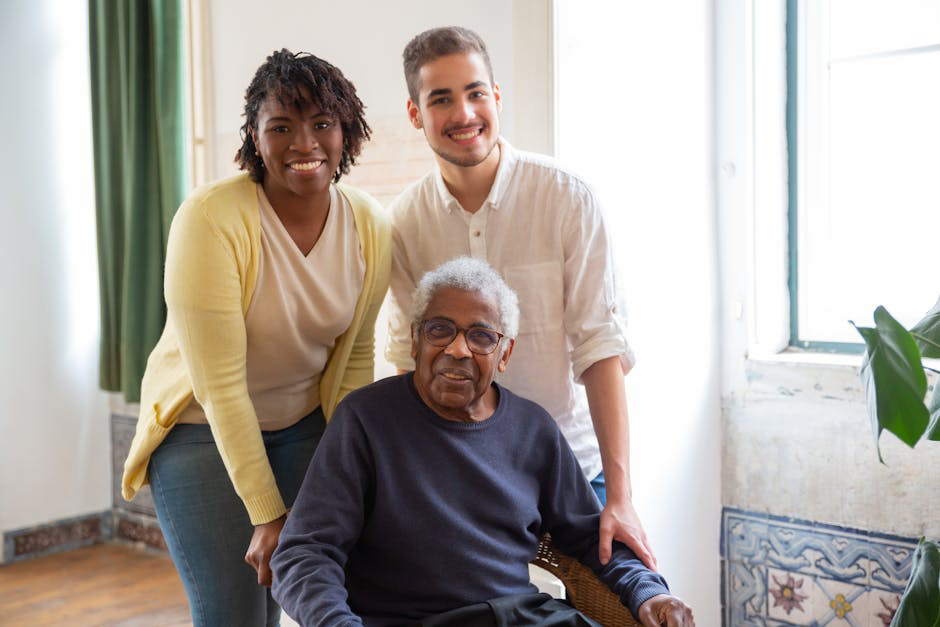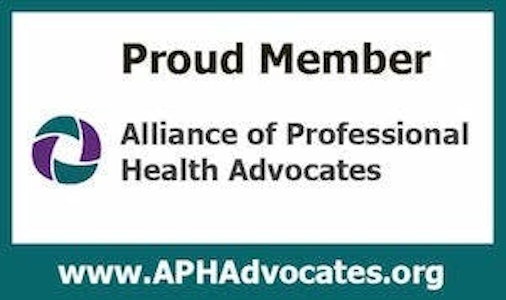As our loved ones age, navigating healthcare and legal decisions can become increasingly complex—especially if cognitive decline, illness, or lack of support makes independent decision-making difficult. One option families may consider is guardianship, but it’s not a step to take lightly. Here’s what you need to know about understanding guardianship, when it may be necessary, the pros and cons, and how to begin the process.

What Is Guardianship?
Guardianship is a legal relationship established by a court, where an appointed individual (the guardian) is given authority to make decisions on behalf of another adult (the “ward”) who is deemed unable to manage their own affairs due to incapacity. This can include decisions about healthcare, finances, living arrangements, and more. The courts can appoint a family member as guardian or a professional guardian.
When Might Guardianship Be Needed?
While every situation is unique, guardianship may be considered when:
- The older adult is no longer able to make safe or sound decisions regarding their health, finances, or living situation due to dementia, stroke, or other significant health issues.
- There is no valid healthcare power of attorney (POA) or advance directive in place.
- Family or friends are unwilling, unable, or unavailable to serve as a healthcare POA.
- There is disagreement among family members about the best course of action, and no one has legal authority to act.
- The adult is isolated, with no appropriate person to advocate for their needs.
- The older adult is at risk of neglect, exploitation, or self-harm.
Pros and Cons of Guardianship
Pros:
- Provides a clear legal authority to make decisions, reducing confusion or conflict among family members.
- Offers protection for vulnerable adults at risk of harm or financial exploitation and other forms of elder abuse.
- Ensures that someone is legally responsible for the well-being and care of the individual.
Cons:
- The process can be lengthy, costly, and emotionally taxing.
- The older adult loses the legal right to make some or all personal decisions.
- Court oversight is ongoing, which can feel intrusive to some families.
- Not all guardians are family members—sometimes a professional or public guardian is appointed, which may not feel as personal. A stranger may be in charge or making decisions on the behalf of your aging loved one.

Example One: In the hospital we witnessed this on occasion. I remember one case in particular. A large family was concerned over their parent’s health concerns. Following a stroke, the patient was no longer able to make their own healthcare decisions. No advance directives or healthcare power of attorney was in place.
The adult children could not agree on the treatment plan, code status (full vs. Do Not Resuscitate). They could not agree on the course of action aggressive vs. comfort cares. The doctors on the unit were frustrated because they didn’t know how to best treat the patient due to multiple options for the course of care. Without feeling that there was any other option, the social worker petitioned the court for a guardianship hearing on behalf of the patient. The court then decided on a Corporate Guardian (private guardian) instead of a family member. The chosen guardian now had the legal authority to make decisions on behalf of the patient.
Example Two: Ms. Garcia is 88 and living alone. She has no children, close relatives, or friends who can help her. After a fall, she is hospitalized and can’t make decisions about her care. There is no power of attorney or advance directive on file.
In this situation, the court can appoint a professional guardian or a public guardian to make decisions for Ms. Garcia. This ensures she receives the care and support she needs, even when there is no family to help.
Example Three: Memory Loss and Safety Concerns
Mrs. Thompson is 82 and has advanced Alzheimer’s disease. She forgets to take her medicine, leaves the stove on, and sometimes wanders outside at night. Her family wants to help, but she doesn’t understand why they’re worried and refuses outside help. She has no power of attorney or advance directives.
In this case, guardianship allows a trusted family member to make important health and safety decisions for Mrs. Thompson, keeping her safe and ensuring she gets the care she needs.
Types of Guardianship
- Full Guardianship: The guardian makes all major decisions.
- Limited Guardianship: The guardian only helps with certain things (like health care or money).
- Temporary Guardianship: For emergencies or a short time.
How Does the Process Work? Understanding Guardianship
The process generally involves several steps:
- Filing a Petition: A concerned party (family member, friend, healthcare provider, elder law attorney or even a facility) files a petition with the court requesting guardianship for the adult in question.
- Evaluation: The court may order a medical or psychological evaluation to determine the person’s capacity. Are they no longer able to make decisions on their own behalf.
- Notification: The individual and close relatives are notified of the hearing.
- Hearing: At the guardianship hearing, evidence is presented, and the judge decides if guardianship is necessary and who should serve as guardian.
- Appointment and Oversight: If granted, the guardian is appointed and must report regularly to the court regarding the ward’s ( your aging loved one) well-being and finances.
Tips for Families
- Write Things Down: Keep notes about your loved one’s needs and what doctors say.
- Respect Wishes: Try to follow what your loved one would want.
- Get Support: Join a caregiver group or talk to an advocate.
- Check Often: Review the guardianship if things change.
What Should Families Do First?
Guardianship is a big step. Try these things before going to court:
- Talk Together: Ask your loved one what they want. Talk as a family.
- Check Paperwork: See if there are powers of attorney or advance directives.
- Meet as a Family: Bring everyone together to share ideas and listen.
- Ask for Help: Talk to a nurse advocate, elder law attorney, or social worker.

Who Can Initiate a Guardianship Hearing?
- Family members
- Close friends
- Healthcare providers
- Social workers
- Facilities (such as hospitals or nursing homes)
- In some cases, even the adult themselves can request help
- Elder Law Attorney
Important Note: State Laws Vary
Guardianship laws and procedures differ from state to state. Each state defines incapacity differently and has its own requirements for filing, evaluation, and oversight. Some states offer limited or temporary guardianships, while others have full or “plenary” guardianships. It’s essential to consult your state’s specific rules or seek legal advice before proceeding.
How to Start the Guardianship Process
- Gather Documentation: Collect medical records, financial information, and any existing advance directives.
- Consult Professionals: Speak with an elder law attorney or a certified patient advocate to understand your options.
- File a Petition: Contact your local probate or county court for the correct forms and instructions.
- Prepare for Evaluation: Be ready for the required medical or psychological assessments.
- Attend the Hearing: Present your case and be prepared to answer questions about the adult’s needs and your qualifications to serve as guardian.
Final Thoughts
Guardianship is a serious step, often considered a “last resort” when no other legal arrangements are in place. If you’re facing this decision, know that you’re not alone. At Your Nurse Advocate Consulting, we understand the challenges families face and can help you navigate your options with compassion and expertise.
Guardianship is sometimes the only pathway forward when families can’t agree, and no advance planning is in place. It’s a reminder of the importance of early conversations and legal preparation—but also of the safeguards in place to protect vulnerable adults when those steps haven’t been taken.
Need help understanding guardianship or other care planning options?
Reach out to us at Your Nurse Advocate Consulting or call +1 888 330 MYRN for guidance tailored to your family’s needs.
Thank you for spending time with us this week. We’re so glad to be part of your journey in caring for your aging loved ones. It’s an honor to share resources, insights, and a little encouragement to support you along the way. We look forward to bringing you more helpful tools and compassionate guidance in the weeks ahead. See you back here soon!
With care,
Pam and Linda
Your Nurse Advocates
“Compassionate Care for Aging Adults Along with Peace of Mind for the Family”
Resources:
Resources for Families Considering Guardianship
Free Guide: Getting Your Affairs in Order Your Nurse Advocate Consulting
Your Nurse Advocate Consulting, LLC Free Resources
- Personalized consulting, educational resources, and advocacy for families navigating senior care decisions.
National Center on Elder Abuse – Guardianship
https://ncea.acl.gov/RESOURCES/Publication-Guides.aspx#guardianship
- Comprehensive guides on guardianship, alternatives, and state-specific resources.
American Bar Association – Commission on Law and Aging: Guardianship
https://www.americanbar.org/groups/law_aging/resources/guardianship_law_practice
- Legal basics, state law links, and practical information for families and professionals.
National Guardianship Association
- Standards, best practices, and a directory for professional guardians.
Eldercare Locator (U.S. Administration on Aging)
- Connects families to local resources, including legal aid and guardianship support.
State-Specific Resources
- Each state’s Department of Aging or Probate Court website provides forms and guidance for starting the guardianship process. Search “[Your State] guardianship process” for direct links.
About the Authors
At Your Nurse Advocate Consulting, Pam and Linda’s mission is to empower aging adults and their families to take control of their health, prepare for life’s uncertainties, and secure their peace of mind. We are dedicated to providing compassionate guidance, personalized support, and expert resources to help our clients navigate complex medical needs and organize their personal affairs.
As independent patient advocates, we have a steadfast commitment to clarity, family well-being, and empowerment, we strive to make a meaningful impact by ensuring our clients feel confident, prepared, and cared for every step of the way on their healthcare journey.
Expert Guidance You Can Trust
With over 80 combined years of R.N. experience navigating the complex healthcare system, we stand as trusted guides for seniors and their families. Our expertise ensures they can access the care and resources they need without feeling overwhelmed by red tape or confusion.






